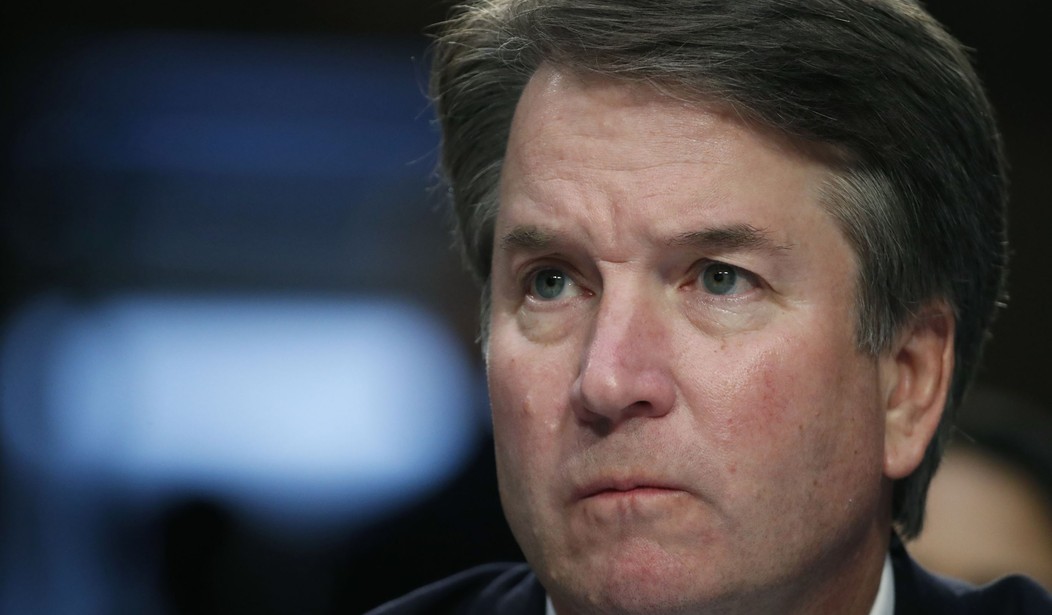Brett Kavanaugh is now a moving target, a wounded stag emerging from a thick forest of hearings, interviews and the moral speculations of strangers. This man, nominated to be a justice of the U.S. Supreme Court, enjoyed the respect of everyone only a few days ago and is now caught in the crossfire of changing attitudes about sex. Aggressive political manipulators smear him with unsubstantiated accusation that damages not only him but long-held traditions of justice and fair play as well.
Few subjects invite moral preening, absolute judgments, exaggeration, lies and fuzzy memories like the subject of sex. Fact or fiction, sex is a subject tailored to titillate, humiliate or denigrate. Controversy over the law is more important in disputes like the Kavanaugh nomination, but the law is usually boring. Sex never is.
Sex between two people is fraught with ambiguity, and in the era of #MeToo, the benefit of doubt falls to the woman of the species even if there was no actual sex to speak of. This is an authentic sea change in attitudes.
For centuries, men controlled political and cultural narratives about sex. Women played to the male power. Some women insisted that a man would try "anything" if not restrained by a woman, and it wasn't merely the maiden aunt who declared that "all men are animals." The stakes were so high that rapists -- some guilty and some not -- were punished at the end of a rope. A righteous woman knew better than to accuse lightly.
The birth control pill and legalized abortion changed all that. Women could enjoy sex without fear of pregnancy, and the culture was transformed. Women demanded equality in the boardroom and claimed it in the bedroom, too. But like the beasts of George Orwell's "Animal Farm," some animals thought they were more equal than others.
Recommended
The perception that "men are animals" reasserted itself with vulgar vengeance as men demanded sexual favors from resisting women who worked for them. The roster is long, itemizing crass and aggressive behavior by powerful men, especially in television, movies and the media, where sex is often the currency of success. Harvey Weinstein and former CBS Corp. CEO Leslie Moonves learned to their sorrow that times had changed.
The #MeToo movement was born of necessity, to root out villains and protect women. Like many good movements before, it suffers from its own success. Many accusations may or may not be true. When you add politics to the mix, hypocrisy expands a single accusation and destroys reputations without an iota of proof.
Judge Kavanaugh was tarred with an accusation without evidence and on the recollected vague and ephemeral teenage memory that he attempted rape as a "stumbling drunk" at the age of 17. "I thought he might inadvertently kill me," says Christine Blasey Ford, a 51-year-old research psychologist in Northern California. She points the finger of blame late in the game, 36 years after the night she says an evening of booze and fun went horribly wrong. "He was trying to attack me and remove my clothing," she says. She is sure it happened, but she can't remember when or where, how she got to the party or how she got home. He says it didn't happen at all and suggests she might have confused him with another teenage boy. Women classmates from his high school said that boy was never the Brett Kavanaugh they knew.
The accuser told no one until 2012 and even then didn't name Kavanaugh. She first talked about it in "couples therapy" with her husband, where everybody was expected to tell a story for insights into a troubled marriage.
Ford first said she wanted to get her story out but then declined an invitation to tell it to the Senate Judiciary Committee, passing on Kavanaugh's nomination. Her lawyer says such an examination of the facts isn't needed, lest it become a "grilling." That's nonsense. Sexual assault requires getting at the truth. A good man's future is at stake. Arlen Specter, the late Republican senator from Pennsylvania, understood that when he pressed Anita Hill hard with questions about her accusation of sexual harassment against then-Supreme Court Justice nominee Clarence Thomas, and polls after the hearings ran high in support of Thomas. He was confirmed by a narrow, partisan vote of 52 to 48, but he was confirmed.
Sen. Dianne Feinstein, who says she had "information" about Kavanaugh as early as July but only recently made it public, now says she's not sure that everything presented by the accuser is "truthful," though she finds the accuser "credible." This is a fine time to wonder about whether her bombshell witness is telling the truth. This is one time it's easy to agree with the president: "This is not a man who deserves this."

























Join the conversation as a VIP Member